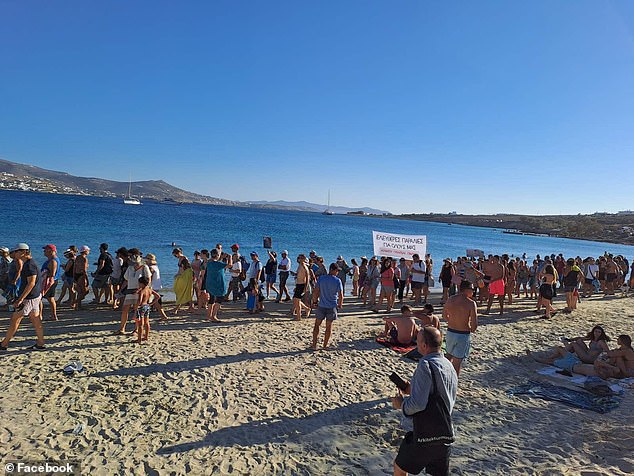
Greek coastal communities have launched a spirited counteroffensive against what they perceive as the “abusive occupation” of their beaches by aggressive sunbed rental companies, sparking what has been dubbed the “Towel Movement.” Born out of frustration among residents, particularly in Paros, the movement aims to reclaim public beaches from operators charging exorbitant fees for sunbeds and umbrellas, leaving little space for locals and visitors to enjoy the coastline freely.
The picturesque island of Paros, part of the Cyclades archipelago, has been at the forefront of this battle, with residents taking to the streets in protest, brandishing hand-painted banners demanding the freedom to access their beaches. Their grievances stem from the influx of tourists, especially from the UK, who flock to Greece’s shores in record numbers, exacerbating the issue of overcrowding and commercial exploitation.
Tourism, while vital for Greece’s economy, has inadvertently led to the commodification of beaches, where businesses charge hefty fees for beach amenities that should be available to all at no cost. Reports of firms charging up to €60 for a single umbrella and two sunbeds have galvanized the Towel Movement, which insists on the public’s right to enjoy beaches without being subjected to profiteering.
The movement’s demands have gained traction, prompting action from authorities, including increased police patrols to crack down on illegal beach operations. However, resolving the issue remains complex, with local officials grappling with the balance between tourism revenue and preserving public access to beaches.
Despite challenges, there have been encouraging signs of progress, such as the closure of illegal operators on Paros’ Santa Maria Beach following investigations. The movement has also spread to other islands like Naxos, Rhodes, and Thessaly, where residents are organizing to address similar concerns.
The “Towel Movement” underscores a broader issue facing popular tourist destinations worldwide, where the delicate balance between tourism development and environmental preservation is increasingly strained. As coastal communities assert their rights to their natural heritage, the movement serves as a reminder of the importance of sustainable tourism practices that benefit both locals and visitors alike.
RELATED ARTICLES
- EU conservative leaders Meet in Romania for Reelection and Victory lap
- EU Approves Digital ID, Greece Becomes First to Adopt the Law
- Egyptian gunman shoots dead 3 ex-coworkers at Greek shipping company
- Seniors to be fined for violating vaccine mandate
- Greece Announces Mandatory Vaccinations for Old people or 100 Euros Fine per Month











